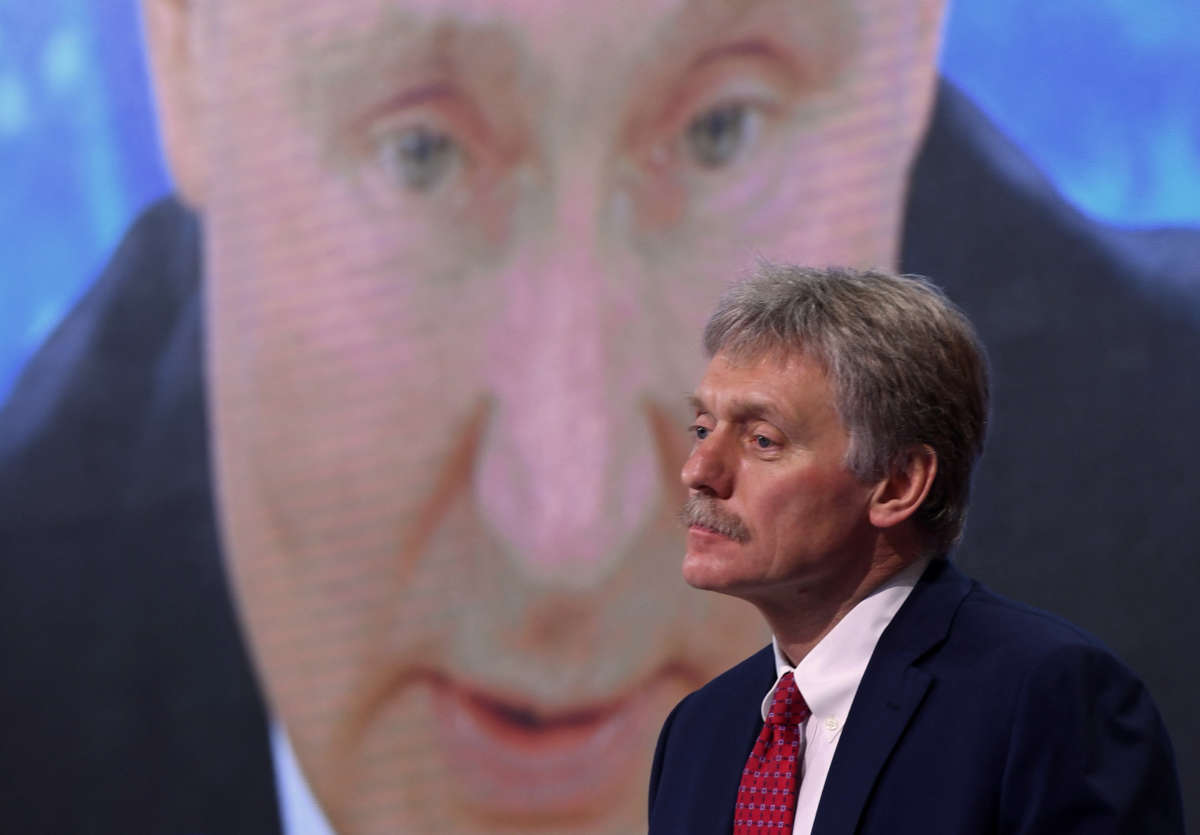Kremlin spokesman Dmitry Peskov said Tuesday that Moscow now considers the United States and its European allies “hostile states” as Western governments continue to pour heavy weaponry into Ukraine, which is attempting to beat back Russia’s deadly invasion.
The West has also put in place an unprecedented regime of sanctions with the goal of hampering Russia’s economy and undermining the country’s war machine.
During an event in Moscow on Tuesday, Peskov characterized the ongoing conflict as “a diplomatic war and a political war” between Russia and the Western nations backing Ukraine with economic and military support as well as intelligence.
“There are attempts to isolate us in the world. It’s an economic war,” said Peskov. “It is true that we keep referring to them mildly as unfriendly states, but I should say that they are hostile states, because what they are doing is war.”
Peskov went on to say that “our national money…has been arrested” and assets “have been stolen.”
“But we are going to fight for them, of course,” he added.
The Kremlin spokesman’s remarks came amid mounting fears that the West’s response to Russia’s illegal and devastating invasion has become a proxy war that could spiral into a direct military conflict between nuclear-armed powers.
Last month, U.S. Pentagon chief Lloyd Austin vindicated such fears by declaring that one of the Biden administration’s primary objectives in Ukraine is to weaken Russia, further dampening hopes of a diplomatic resolution to the war.
While the Biden administration has insisted it does not want a full-blown war with Russia and has publicly distanced itself from a hawkish Democratic lawmaker who recently said the U.S. is “fundamentally at war” with Russia by proxy, foreign policy analysts and anti-war campaigners argue that the White House is inflaming the conflict by prioritizing arms shipments to Ukraine over peace negotiations.
In a floor speech last week, House Majority Leader Steny Hoyer (D-Md.) — the chamber’s second-ranking Democrat — slammed Republican lawmakers for criticizing the Biden administration’s energy policies and declared that Congress should “get off this and really focus on the enemy,” referring to Russia.
“I know there’s a lot of politics here, but we’re at war,” Hoyer said.
Join us in defending the truth before it’s too late
The future of independent journalism is uncertain, and the consequences of losing it are too grave to ignore. To ensure Truthout remains safe, strong, and free, we need to raise $27,000 in the next 24 hours. Every dollar raised goes directly toward the costs of producing news you can trust.
Please give what you can — because by supporting us with a tax-deductible donation, you’re not just preserving a source of news, you’re helping to safeguard what’s left of our democracy.
